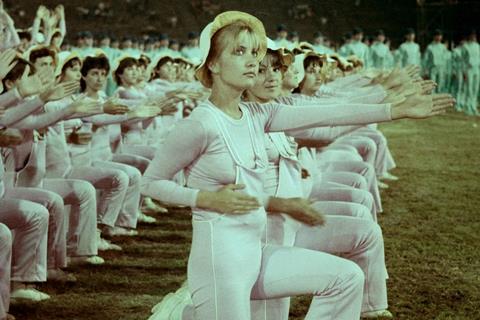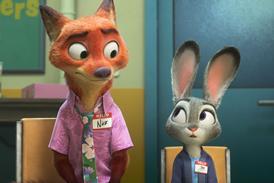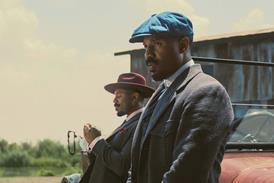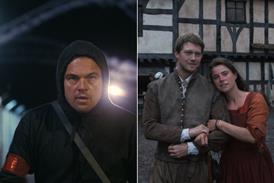Vlad Petri’s hybrid documentary about the realities of revolution takes Best Romanian Feature at Transilvania

Dir: Vlad Petri. Romania. 2023. 68mins
The deep bond between two women is used to explore the empty promise of revolution in Vlad Petri’s imaginative, highly effective doc-hybrid Between Revolutions. Starting out in Bucharest of the 1970s and moving from the fall of the Shah in Iran to the overthrow of Ceausescu in Romania, Petri’s film is entirely constructed from archive footage coupled with a narrated correspondence between the fictional women. Finding a sense of intimacy in the great sweep of global events, this feature, which won Best Romanian Feature at Transilvania, should be warmly welcomed by festivals and documentary channels.
Finds a sense of intimacy in the great sweep of global events
Probably best known for Where Are You Bucharest? (2014), Petri has a track record in exploring how the promise of change seems to inevitably leave a legacy of betrayal. He also has a fondness for blurring reality and fiction, and Between Revolutions was partly inspired by the fact that many people from the Middle East came to study in Romania during the Ceausescu era. Petri’s mother found that several of her fellow students of the period were from Iran.
Co-screenwriter Lavinia Braniste provides some of the dramatic licence, using documents from the Romanian Secret Police archives to create the letters between the fictional Maria, who is Romanian, and Zahra, who is Iranian. The conceit is that the two become friends whilst studying at the University Of Bucharest in the 1970s but, in 1978, convinced that ’something important’ is happening her country, Zahra decides to curtail her studies and head home. The friendship with Maria is sustained by a regular exchange of letters, voiced by Victoria Stoiciu and Ilinca Harnut.
Braniste creates letters that are full of tenderness and affection. The longing for the presence of an absent loved one is palpable and, reading between the lines, we assume that this was more than just a friendship. We also gain a sense of how Zahra’s hopes for the future are gradually crushed as the revolution doesn’t bring the changes she had anticipated. Years later, as Ceausescu’s grip on power begins to falter, Maria is more cautious about the change coming to her country. Archive footage showing Pepsi and Coca-Cola being handed out to eager Romanians offers wry commentary on the transition from communism to capitalism.
Petri sets the women’s concerns, disappointments and fears against unfamiliar archive footage from Romanian and Iranian sources. Mostly black and white, it conveys both everyday events and history on the march. We see people at the beach, relaxing at fairgrounds and living their daily lives. Mass protests are held on the streets. The power of the people is felt in Iran, as multitudes agitate for the fall of the Shah. In Romania, there are sports demonstrations in crammed stadiums that take place under the watchful eye of Ceausescu’s portrait. The sense of scale is matched by the sense of absurdity that history has now bestowed upon these images. Were carefully choreographed spectacles and the call to patriotism all that were required to sustain the public’s faith in their masters?
As the situation in Romania deteriorates, the images are less sunny as we start to see shops with little to sell and people joining queues more in hope than expectation of finding food. Petri and editors Dragos Apart and Catalin Cristutiu do an excellent job of creating compelling, thoughtful montages from what must have been an abundance of footage.
What really strikes home is the darkening mood of the letters, as the women express concern that they are attracting the attention of watchful states. Zahra confides that her father has disappeared. Maria learns that it is the rights and freedoms of women that seem to be the first thing under threat in any brave new order. Between Revolutions covers a lot in its modest running-time, and once again confirms Petri’s ability to bring history alive and question what it means to those individuals who live through it.
Production companies: Activ Docs, Restart
International sales: CAT & Docs info@catndocs.com
Producer: Monica Lazurean-Gorgan
Screenplay: Vlad Petri, Lavinia Braniste
Editing: Dragos Aperti, Catalin Cristutiu, Vlad Petri
Music: Filip Sertic























